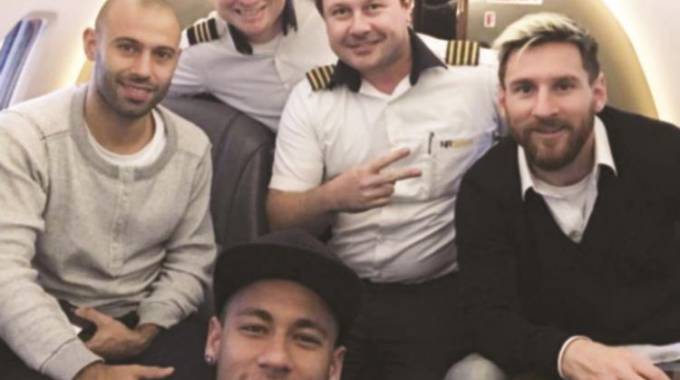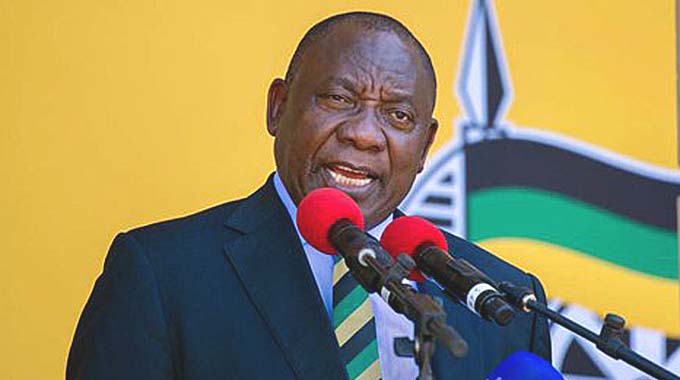When Bruce’s audacious plan flopped

Robson Sharuko Senior Sports Editor
IN today’s world, where football has turned itself into a multi-billion dollar industry, it’s normal for Neymar to arrive at a Brazil training session in a chartered US$15 million helicopter.
Or, for Neymar, Lionel Messi and Javier Mascherano to fly on the Brazilian superstar’s US$13.5 million luxury private jet from Barcelona to a World Cup qualifier in Brazil.
They were teammates at Barcelona back then and, with Brazil hosting Argentina in a 2018 World Cup qualifier, they decided to fly to Belo Horizonte using Neymar’s private plane.
It’s normal, too, for Cristiano Ronaldo to fly from Madrid to London, for the premiere of his film “Ronaldo”, on his Gulfstream G650 luxury private jet which reportedly cost him US$37m to acquire.
It’s fitted with separate bathrooms for passengers and crew, a dressing room, internet access, a telephone and a fully equipped kitchen.
You can hire it, of course, for US$6 500 an hour, provided Ronaldo doesn’t want to use it, as part of measures by his management team to take care of the costs of owning such a flying beast.
Not bad for a Portuguese footballer who grew up in poverty in Madeira and, during his time at Sporting Lisbon, used to travel to training using the metro on a US$1.96 ticket.
Back when he was earning just US$327 a month.
But, long before football transformed itself into this money-making multi-billion dollar beast, the choices for its stars were very limited.
And, in the ‘80s, when some of the highest paid players earned around £4 000 a week, it was rare for a footballer to even travel on a chartered plane.
But, that’s what Bruce Grobbelaar did one September night in 1984 in a desperate bid to try and play for both Liverpool, in a league game, and the Warriors, in a World Cup qualifier, within 24 hours.
Somehow, the authorities had moved the Liverpool game from Wednesday to Saturday for it to be broadcast live on television.
And, Grobbelaar found himself trying to play for Liverpool, in a league match, at Anfield on a Saturday and the Warriors, in a ‘86 World Cup qualifier at Rufaro, the following day.
The Jungleman had kept goals for the Warriors in the first leg of that qualifier in Cairo, which ended in a 0-1 defeat for the Warriors, on August 28, 1984.
It was the third World Cup qualifier for the Warriors, since their re-admittance into the global football family, and he had been in goals in all the three matches.
The decider was at Rufaro, on September 30 and, with Liverpool having a league match at Anfield against Sheffield Wednesday the previous day, the Jungleman took a gamble to play in both games.
His plan was simple — he would dash from Anfield to the John Lennon International Airport, then known as Speke, jump onto a plane and fly to Gatwick International Airport in London.
There, he would board an Air Zimbabwe plane to fly directly to Harare and arrive in the morning of that World Cup qualifier against the Pharaohs.
That meant an approximate 287km trip down to London from Liverpool and, then, an estimated 8 285km flight from the British capital to Harare.
Maybe, even his concentration was compromised as, just eight minutes into that match against the Owls, he burst out of his penalty area to try and make what appeared a routine clearance.
Somehow, he pushed the ball straight at Sheffield Wednesday striker, Imre Varadi, who rounded him and fired into the corner to give the visitors a shock lead.
“There is a story to it,” Grobbelaar told an interactive question and answer session with fans.
“I came out . . . got through the ball, I remember I tried to pass it to Alan Kennedy with my left foot.
“Imre Varadi intercepted it around the corner and into the back of the net.”
Gary Shelton then struck in the 68th minute to settle the contest as the Owls won 2-0 on the road. Then, after the match, Grobbelaar, who hadn’t revealed his tight travel plans to his manager, Joe Fagan, started to put his elaborate plans, to get to Harare as quickly as possible, into action.
And, that included chartering a Cessna plane to fly him from Liverpool to London when he intended to board the Air Zimbabwe jet to Harare.
“I played for Zimbabwe in Egypt . . . in a World Cup game,” he said.
“The next game was in Zimbabwe. The Wednesday (Liverpool) game was on the Saturday live on TV.
“I had to get back to Zimbabwe the next day to play in the return leg.
“I booked a car to take me to Speke airport. I hired a plane to take me to Gatwick airport, cost me a lot of money.
“There, I was going to jump on an Air Zimbabwe flight to play the next day. I had done this secretly.” Today, such a charter will cost about £6 300.
With Grobbelaar then earning around £4 000 a week, which made him one of the highest earning footballers in England then, this meant he sacrificed about one-and-half weeks’ wages for that charter flight just to try and play for his country.
But, his Liverpool manager, Fagan, had long sensed something just wasn’t right with his goalkeeper.
“On the Friday, Joe Fagan comes into the dressing room and says: “Hey Bruce, who plays in goal for Zimbabwe if you don’t play?”
“I said: ‘His name is Lucky Dube.’
“He thinks I am making this up, He comes back in on the Saturday morning before the game and everybody is getting dressed and he says: “This young chap, Lucky Dube, he plays for Zimbabwe, does he?’ “I say: ‘Yes, he is my back-up in the national team.’ He says: ‘Okay,’ and then he walks out.
“I have got the car coming straight after the game. That was in my mind. I go ahead and play the game.
“I made a big f*****g error. Imre Varadi scores. I go straight off the field, get showered, change, jump straight into the car and off I go to Speke airport.
“In the plane, flying. I am sitting next to the pilot. This is only a Cessna. Pilot is radioing Gatwick airport. ‘This is Charlie Delta number two. What is the status for UM725?’ ‘Charlie Delta, this is control tower at Gatwick airport. You might as well not even come because UM725 is not taking off. They blew an engine on landing so it is out of commission.’ The pilot says to me: ‘What do you want to do?’ “You might as well take me back.” And, Grobbelaar flew back to Liverpool.
“I get back to Speke, go back to Anfield because I left my keys there,” he said. “I walk into the players’ entrance . . . As I’m walking into the dressing room Joe Fagan comes up and says: ‘Anything to tell me?’
“I said: ‘What do you mean, boss? Where have you come back from?’ I said I was in the plane.”









Comments